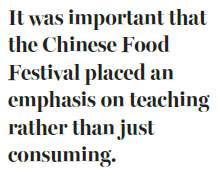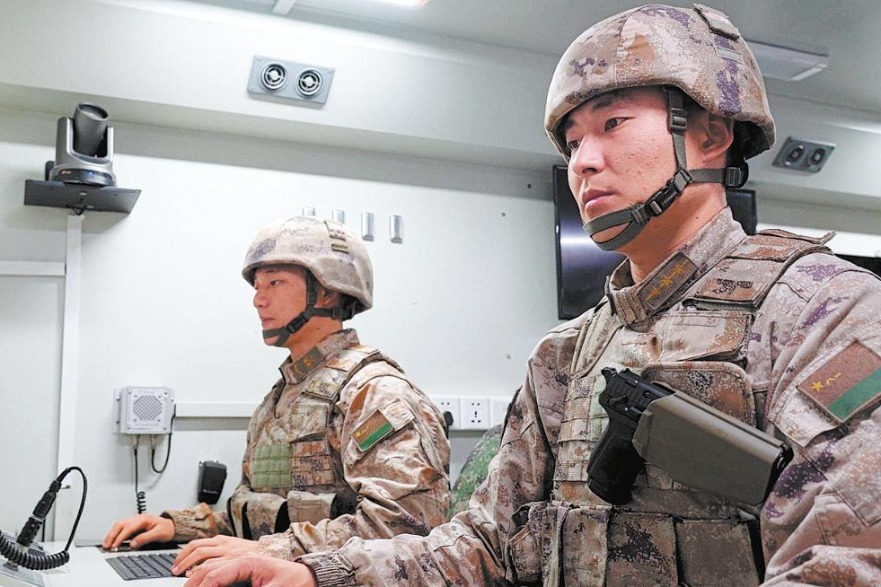How Brits acquired a taste for 'exotic' food

Once a culinary wasteland, the UK has embraced dishes from all over the world. Just don't ask us to cook them.
In the days when it was difficult to find chilies or garlic in most British supermarkets, options for eating out were also limited. "Chinese or Indian?" was the refrain for Britons lucky enough to live in an area sophisticated enough to have both types of restaurant at which to dine in or take out.
The other option was fish and chips, but even that classic British dish was sometimes sold by immigrants, such as Italians in Scotland and Greek Cypriots in North London.
British food in the 1970s and 1980s was still centered on meat and local vegetables, although the beginnings of the food revolution that has swept Britain had been long evident, if not available to everyone.

The Hindoostani Coffee House opened in 1809 in London and the Chinese Restaurant opened in 1908 in London's Piccadilly. But these were middle-class curiosities. By the second half of the 20th century, chefs from Hong Kong and Bangladesh were catering for Britons of all social classes and in all parts of the country. Both types of eatery stayed open after pubs and bars shut at 11 pm, early closure being the result of World War I licencing regulations, which were only relaxed in 2005.
Today the choice of food available in British cities is much more diverse. Immigration has brought cuisine from all over the world, and businesspeople have turned many cuisines into franchises, which can be found on every high street and in every shopping mall.
The franchises have picked up on what the first immigrant chefs quickly realized - that the British did not want their foreign food to be too foreign. As a result, the quintessential Chinese and Indian dishes in Britain - chop suey and chicken tikka masala - were UK inventions to suit local tastes, that cannot be found in their home regions.
There was no chop suey - a stir fry with almost anything in it - at the Chinese Food Festival in London last week. Visitors braved the weather to eat Chinese food and learn how to cook it. Stalls sold Hainan chicken, crayfish, a variety of dumplings and Taiwan sausage, among many other things.

The advent of international cooking in the UK was accompanied by the arrival of teachers who wrote books and demonstrated their techniques on TV. Ken Hom, whose parents came from Guangdong, came to embody Chinese cooking, while the actor Madhur Jaffrey played the same role for Indian cuisine.
For some reason, Jaffrey was the dominant figure in our home. It was perhaps because my parents had Indian friends, and Glasgow, where we lived, had a vibrant Indian restaurant scene. It should be noted that at that time, before 1982, Scotland did not even have a McDonald's.
But it was important that the Chinese Food Festival placed an emphasis on teaching rather than just consuming. In the UK, more and more and restaurants are opening up, supported by delivery companies such as Deliveroo and Uber Eats, just as the amount of time spent cooking at home is falling off.
The growth of choices can be a good thing but it is underpinned by some worrying developments. For years, Britons have felt too busy to cook, and many prefer to watch cooks on TV rather than follow their instructions in the kitchen. The shrinking size of kitchens in new homes is acting as a further disincentive.
In the 21st century, Britons can buy almost any type of food from all over the world. The question is, how many would know what to do with it?
Since it can be ordered online and delivered in 30 minutes, who needs to know how to cook?
The author is a senior editor at China Daily UK. Contact the writer at conal@mail.chinadailyuk.com.
(China Daily European Weekly 09/15/2017 page11)
Today's Top News
- China holds central rural work conference
- President Xi to deliver New Year's message to ring in 2026
- Xi's diplomacy in 2025: Shedding light on a world at crossroads
- China to apply lower import tariff rates to unleash market potential
- China proves to be active and reliable mediator
- Three-party talks help to restore peace






























